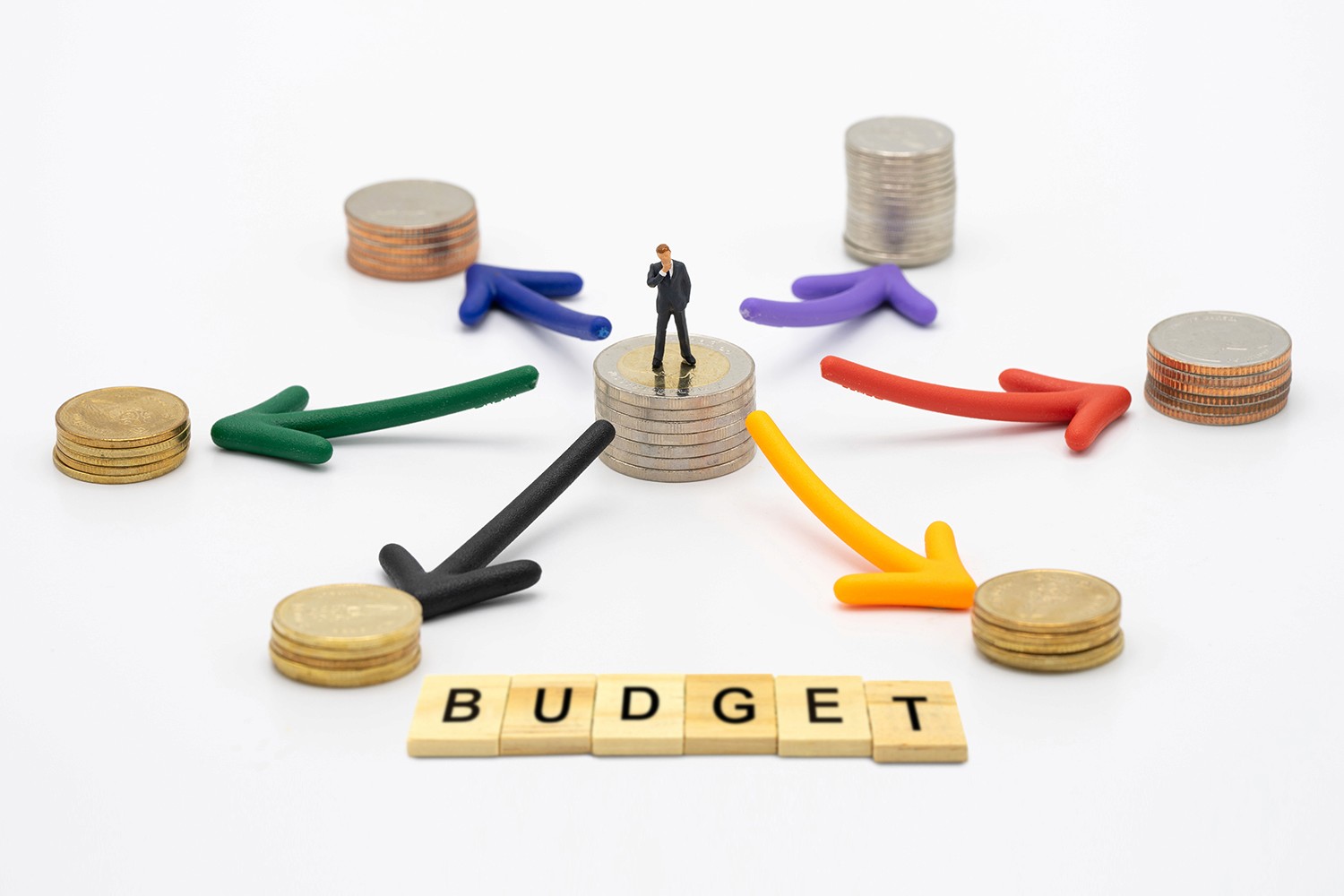Budgeting Basics: How to Create and Stick to A Budget
Oct 8, 2024

Budgeting and management are essential skills everyone needs to achieve financial stability and long-term wealth. For one seeking to gain personal financial control or for an investment management consultant targeting clients in terms of financial success, it is worth understanding the basic principles of budgeting. The following is a comprehensive guide on how to make a budget, as well as some valuable information on how to stick by it so that you will remain on track with the financial target you have set.
Understanding the Importance of Budgeting
Budgeting is the financial planning core. This practice tries to manage your income and expenses in a systematic manner so that you will be able to make the right decisions concerning the handling of your money. Creating a budget provides you with clear knowledge of where you stand in terms of your personal financial situation, which is very important whether you want short-term stability or long-term wealth.
Budgeting for individuals is a mighty tool in helping people:
Identify areas of unnecessary overspending and cut back on unnecessary spending.
Save for emergencies, major purchases, or long-term goals.
Debt reduction and overall bettering of one's financial position
Plan for the future, plan retirement, invest, and much more
Financial Advisors can help tremendously at this pivotal stage, to enable their clients to learn the value of budgeting. They can further support a client in making better decisions through education that filters through the necessity of proper financial planning being put toward unique objectives.
Step-by-Step Guide to Creating a Budget
1. Track Your Income
Start by breaking down and writing down everything that you bring in. This may be your income, self-employment earnings, child support, government benefits, and everything else that you collect from work regularly. You can just use an income tracker or a simple spreadsheet for monthly/annual income. Knowing exactly how much income you have is the starting point for building a more accurate budget.
2. Monitor Your Spending
This is when things get really interesting, because very few people have any idea where they are spending their money. Begin by breaking down the necessities and luxuries of your spending into two levels.
Necessities are shelter, utilities, food, transportation, and debts.
Luxuries would be entertainment, dining out, subscriptions, or discretionary purchases.
Record your expenses using a spending tracker or a budgeting application for at least a month. This will provide essential data regarding how you spend your money and help you find out where you can cut some spending and assist you to save more. If you have difficulty keeping track of money, let's start small by checking your weekly receipts or analyzing your checking account transactions. You can even make a log for all your expenses so that even minor purchases may add up in the long run. Apps like Monarch Money and Quicken Simplifi can assist here as well.
3. Calculate Your Net Worth
Calculating net worth is a key to financial planning for individuals. First, list your assets: cash, investments, and property. Then, add your liabilities: loans, credit card debts, and other debts. Subtract liabilities from assets to see your financial position. This simple metric provides a clear view of your financial health.
A robust net worth signals financial health. It reflects assets outweighing debts, indicating prosperity. When liabilities exceed assets, the balance turns negative, revealing financial strain. Maintaining a positive net worth fosters stability and opens doors to future opportunities.
Assets and liabilities face off on the balance sheet. Market values shine next to each possession. Debts lurk below, spelling out sums due. A simple subtraction reveals your net worth. This financial snapshot captures your current standing in stark relief.
4. Set Financial Goals
The key to creating a budget that reflects your aspirations is setting financial goals. Your goals may include:
Building an emergency fund of three to six months of living expenses
Paying off high-interest debt, such as a credit card balance
Saving for a down payment on a house or a new car
Investing in a retirement plan or other long-term investment opportunities.
Major life events, such as children's educational expenses or a business start-up, entail forward planning.
5. Create a Realistic Budget
Now that you have an overall view of your earnings, expenditures, net worth, and financial goals, it is time to make your budget. You can use a worksheet for a budget or use budgeting software to map out how you will spend your money on various groups of expenditures. Ensure that there are all the essentials that you want to budget for and that leave room for savings and investments.
A realistic budget will meet your needs, wants, and financial goals. It might demand that you need to make changes in your spending behavior, like saving on things that you don't necessarily need or generating more money.

Sticking to Your Budget: Strategies for Success
Preparing a budget is only half the effort; sticking to it requires all the work. Some practical ways of staying on track are as follows:
1. Create a Customized Tracking System
Develop a tracking system that suits your preferences and lifestyle. It may be a budgeting application or even an Excel spreadsheet, or perhaps it is as simple as a paper notebook. The thing is to find what works best for you in such a way that it will make it easy for you to track income and expenses in real time. Regularly reviewing your budget will help ensure that you will be within the limits of what was allocated.
2. Analyze and Adjust Spending Habits
Observe your spending habits and note the areas you may need improvement. Seek opportunities for trimming unnecessary costs or getting better deals on necessary services. If you overspend because of a problem of impulsive buying, try to put a limit on such behaviors, such as spending limits or waiting periods for purchases.
3. Automate Savings and Investments
The best way to stay on budget is through the automation of savings and investments. It can be from a direct transfer from your paycheck, otherwise from your bank account to your savings or investment accounts, so you can save or invest without reminding yourself each time.
Working with a Financial Advisor, who handles investment management consulting, can be very helpful to set an investment plan in place and automate it.
4. Stay Motivated and Adapt as Needed
Maintaining motivation is crucial for sticking to your budget. Set clear financial goals and celebrate small milestones to keep yourself inspired. If you encounter unexpected expenses or changes in your financial situation, be flexible and adjust your budget accordingly. Regularly review your progress and make necessary tweaks to stay on track. Remember, budgeting is a dynamic process that requires continuous effort and adaptation.
Conclusion
Creating a budget and following it rigidly is the best investment tool for financial empowerment. A person can control his or her finances, reduce debt, save for the future, and make intelligent investment decisions. In practice, budget principles are important to financial planners and investment management consultants. Their job is to give clients the best financial planning advice in all aspects of their financial picture.
At Censifi, we believe that being informed is key to achieving financial goals, and we combine it with our custom financial solutions. To simplify budgeting and investments, we are introducing consulting services in investment management, financial planning, and budgeting. Our team of experienced professionals is here to help you navigate your financial journey with ease and confidence.
Contact us today to learn how we can help you achieve the future you envision-where financial prosperity truly flourishes.